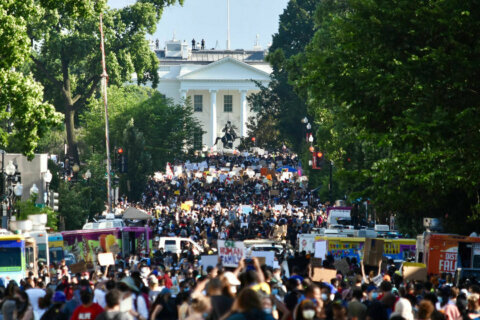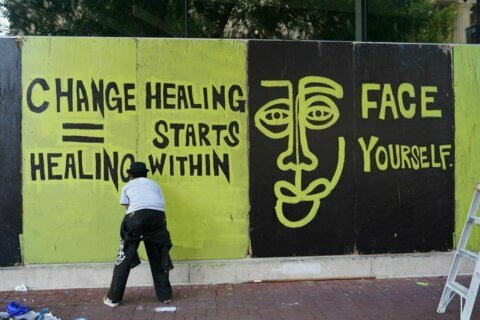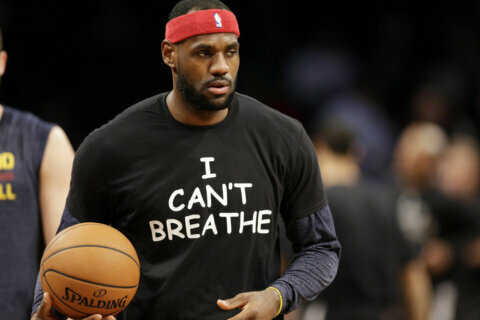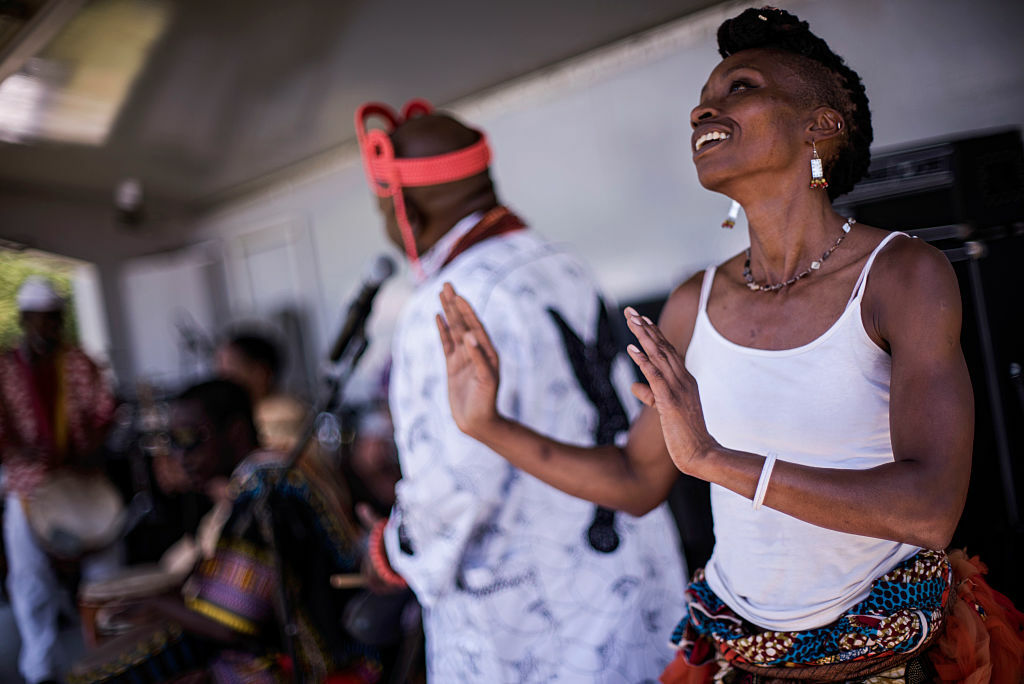
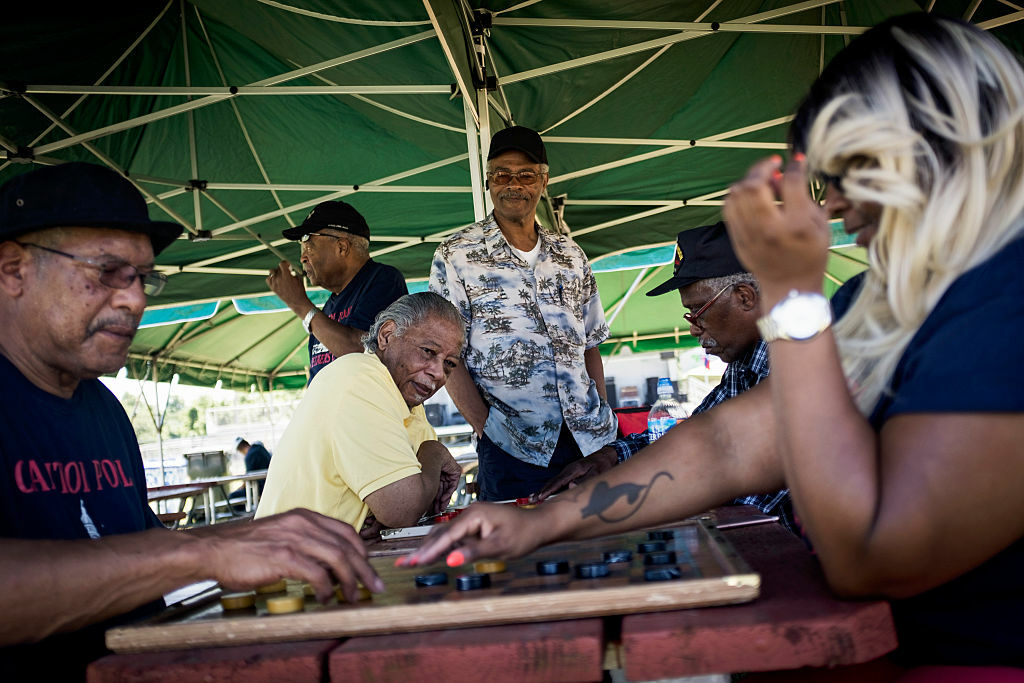
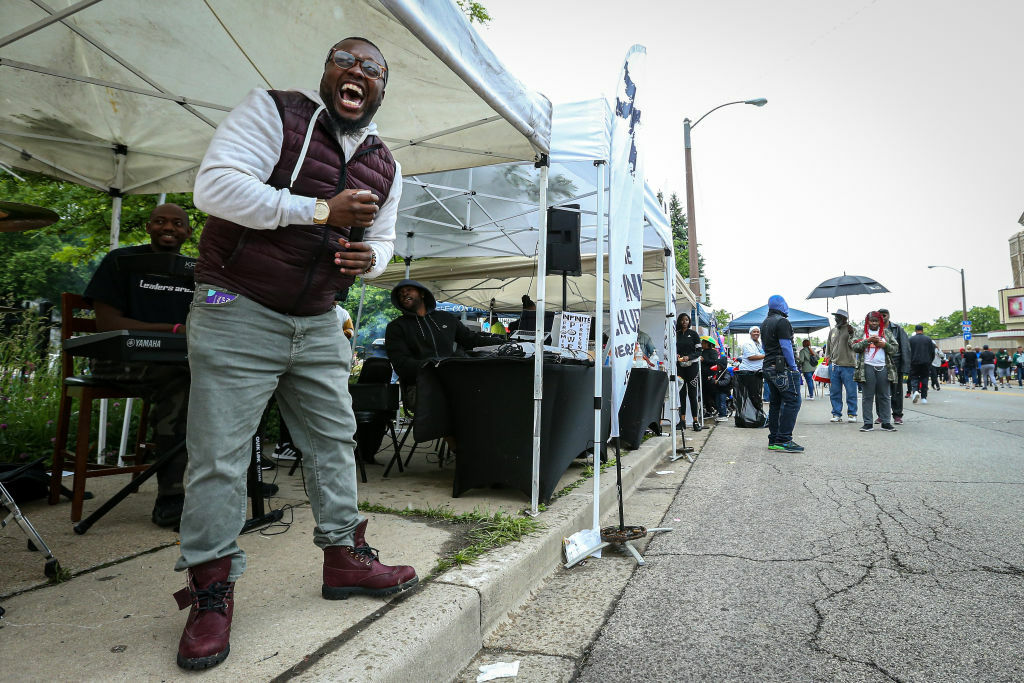
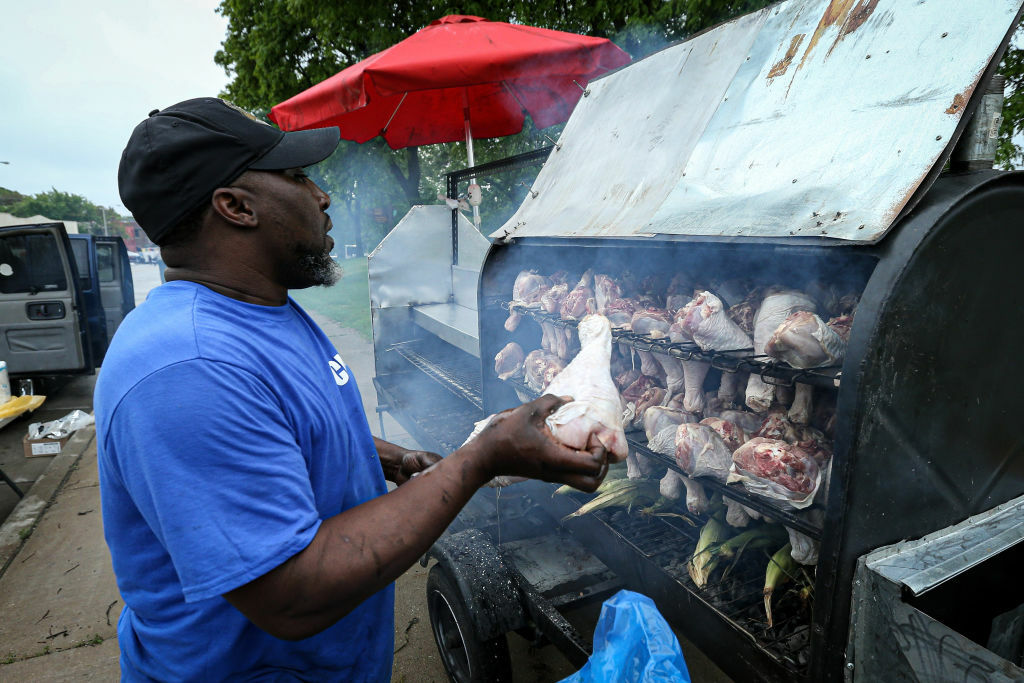
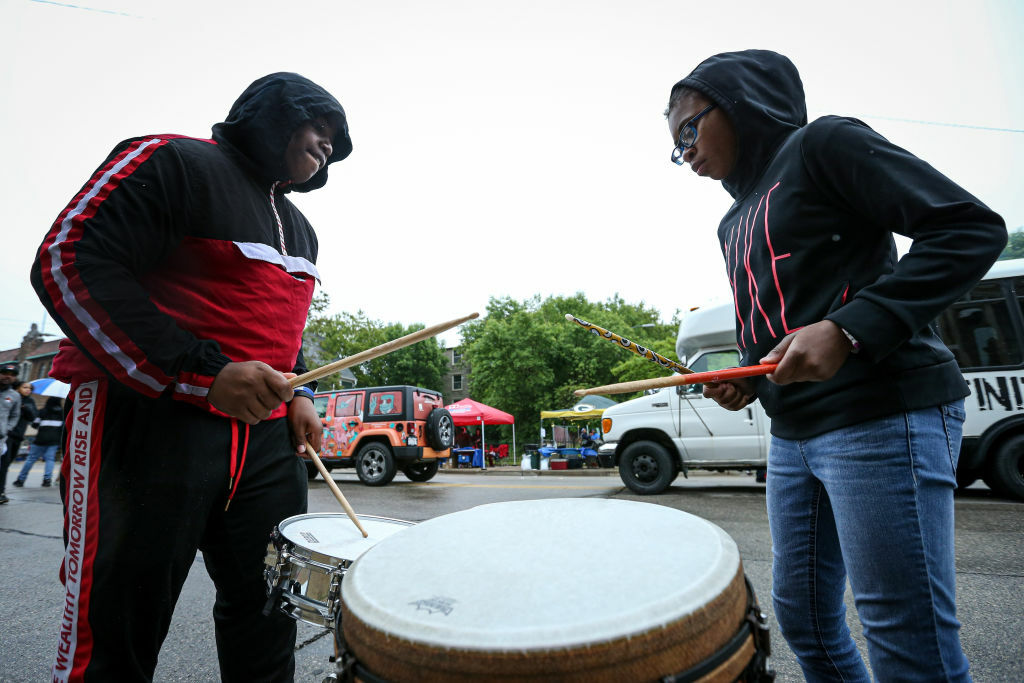
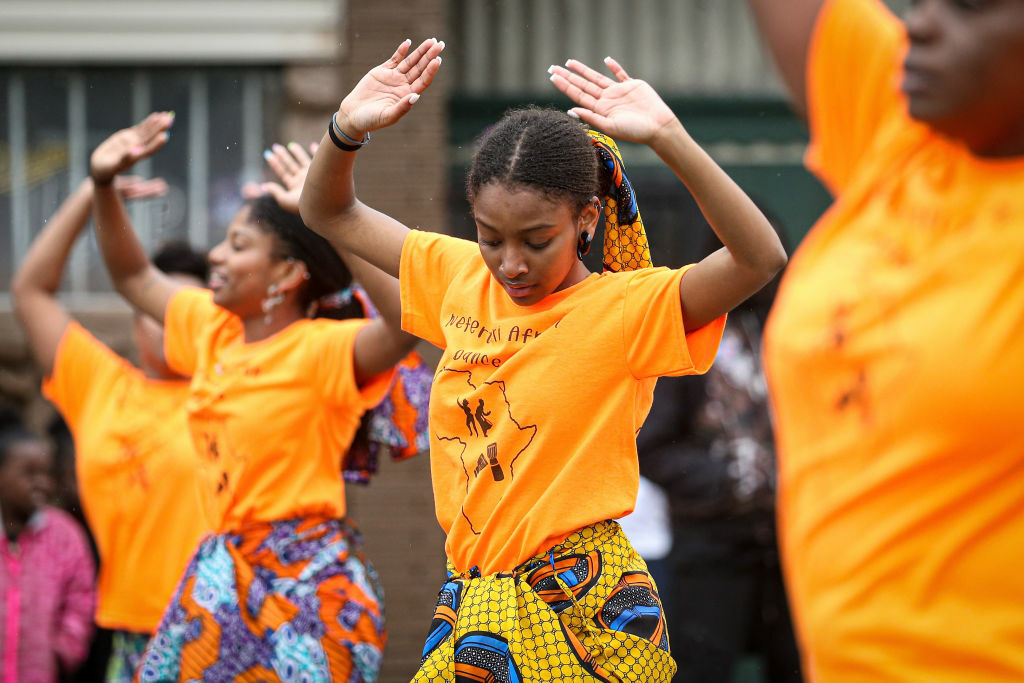
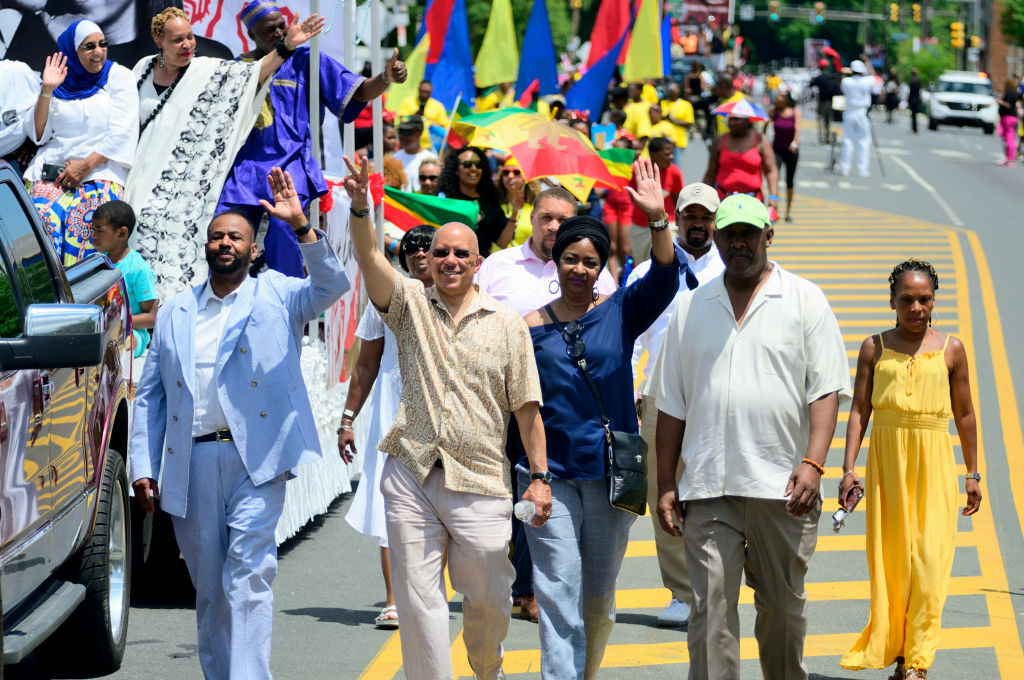
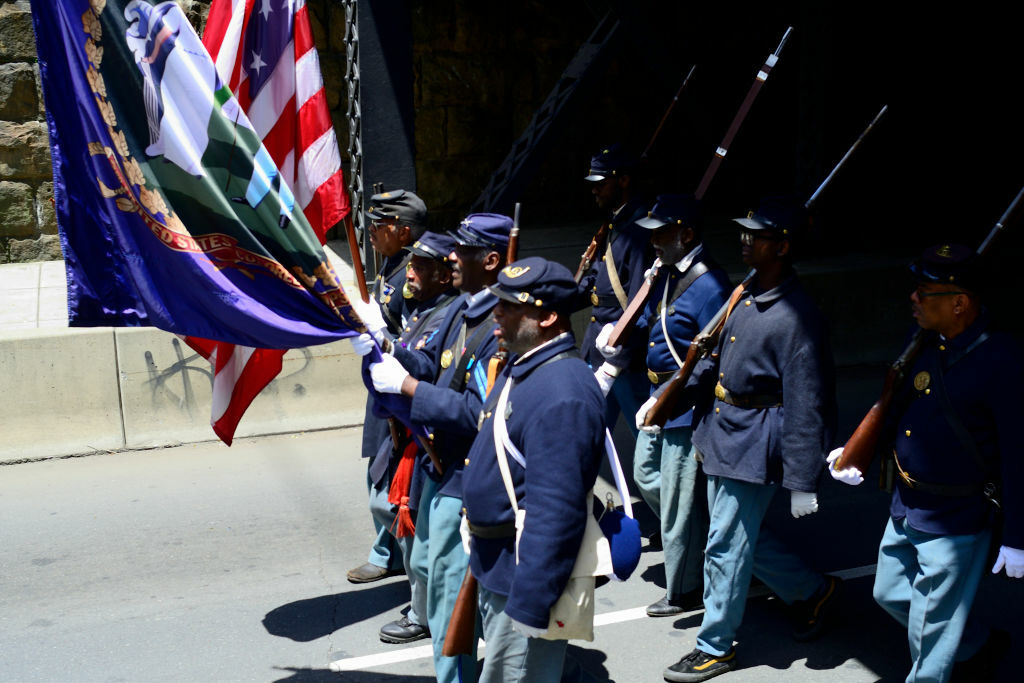
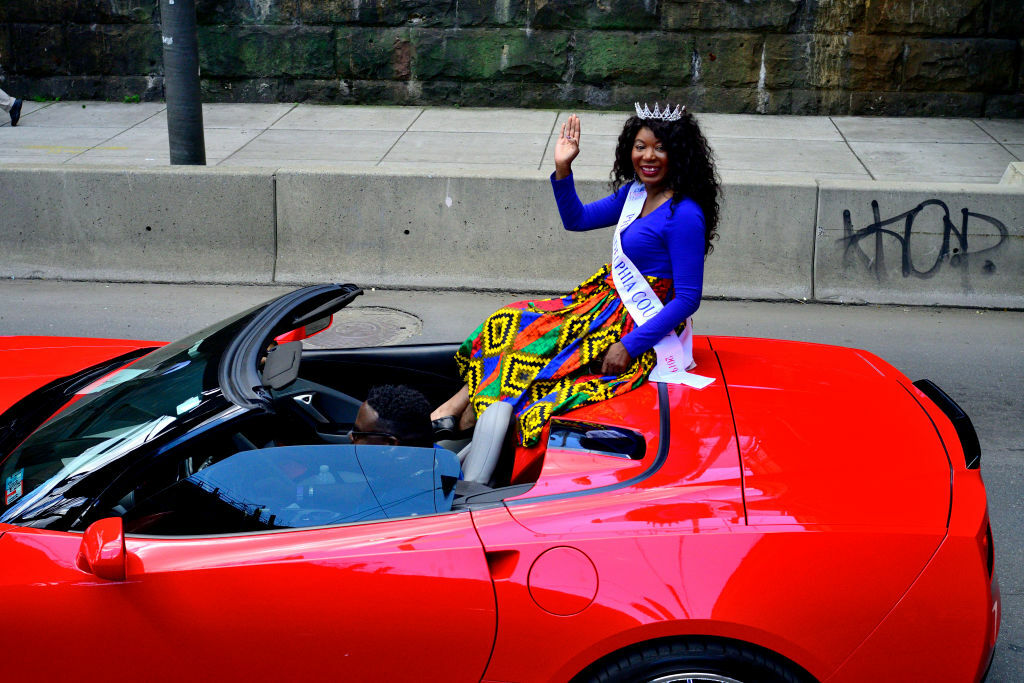
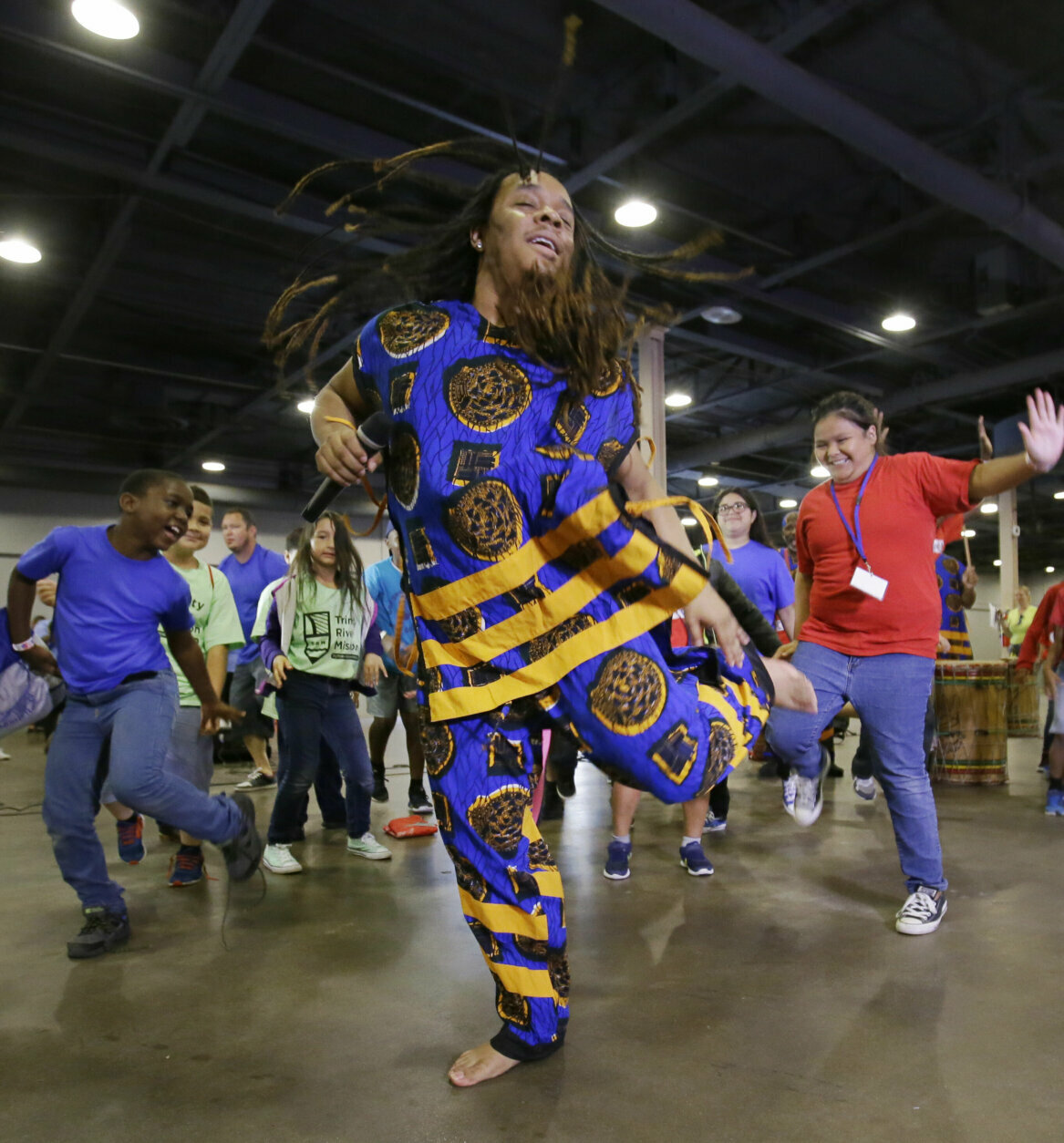
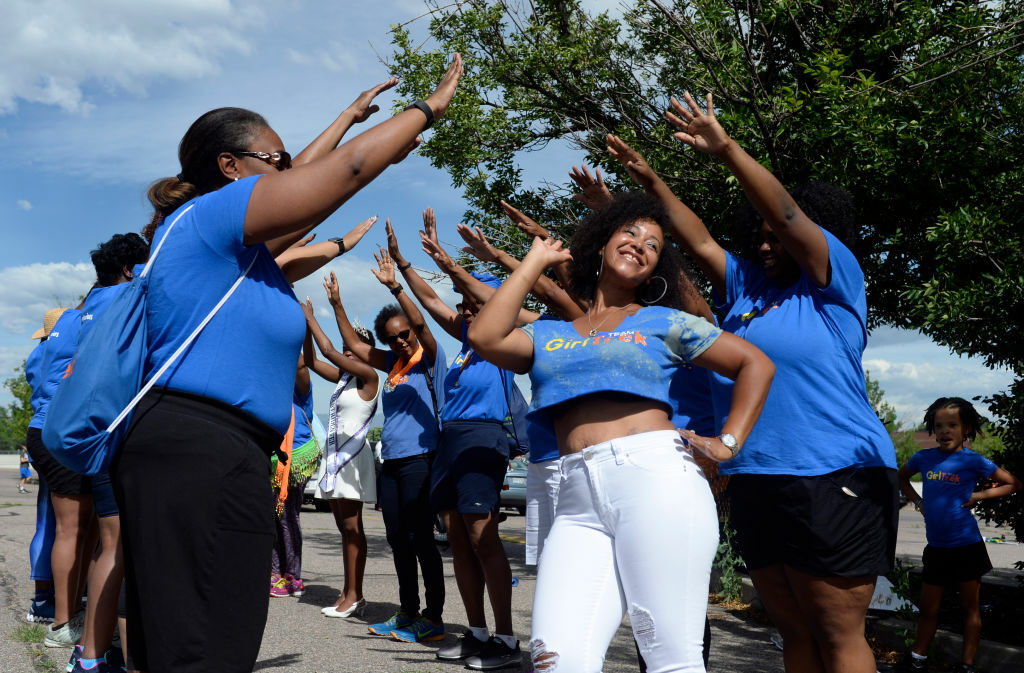
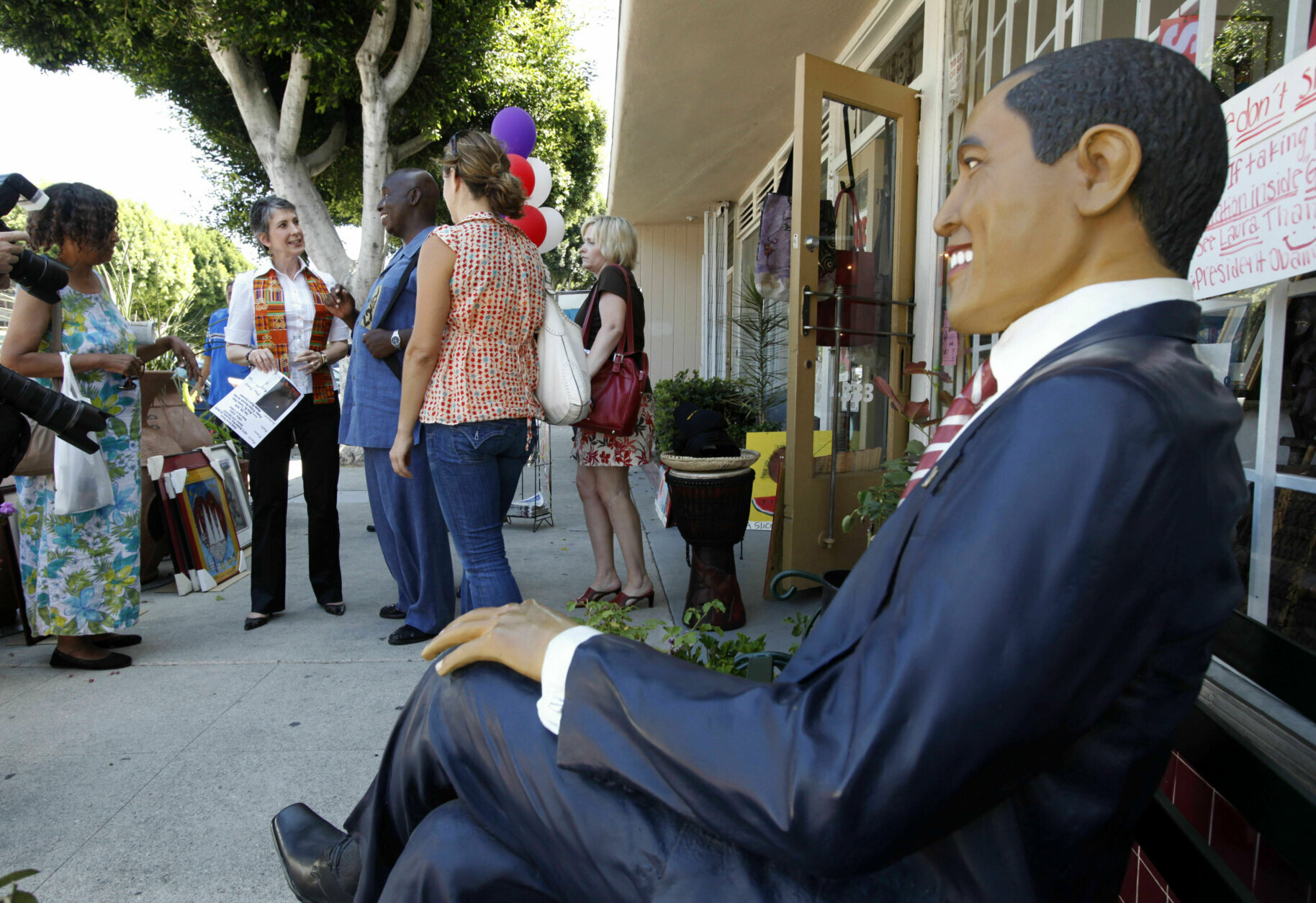
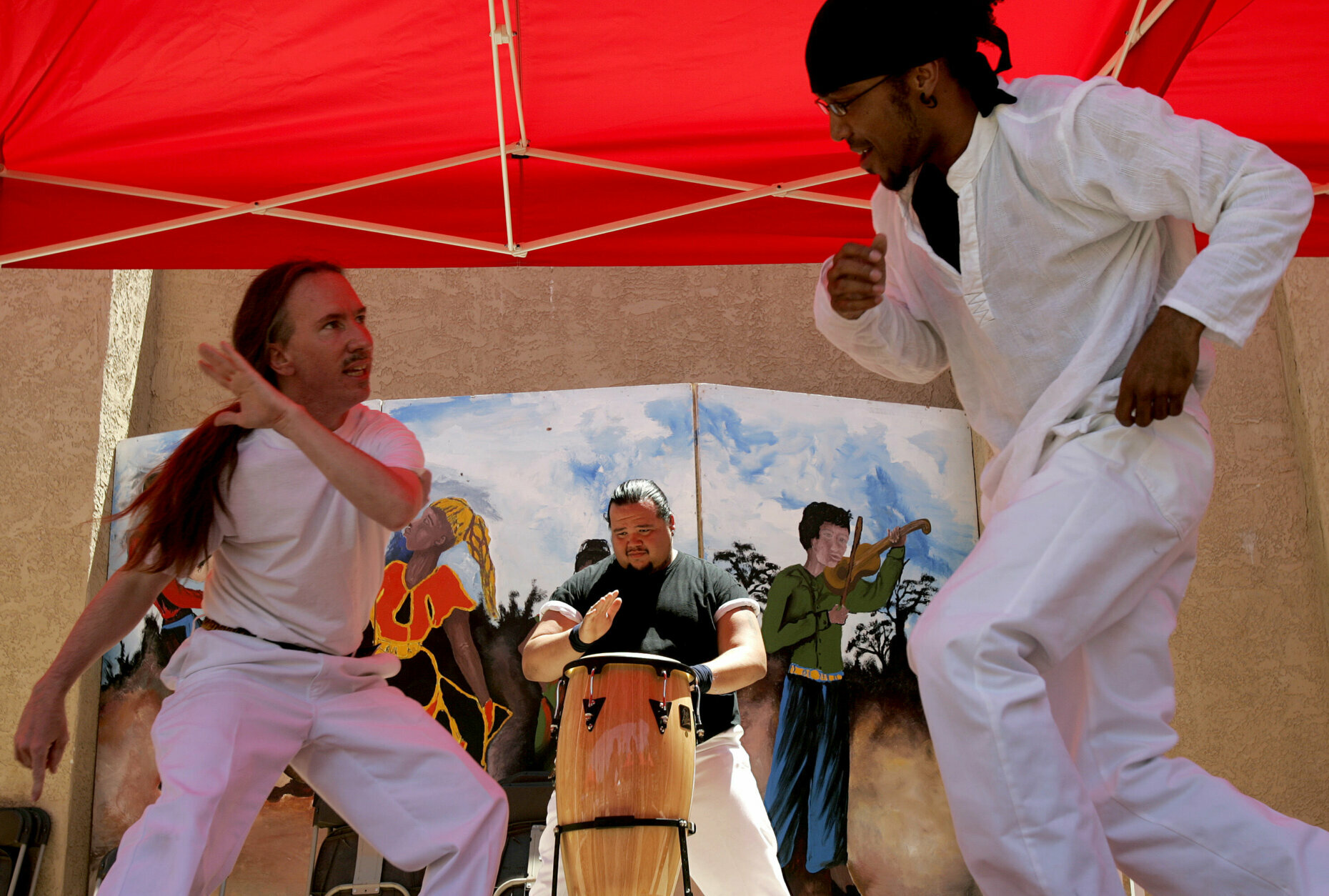
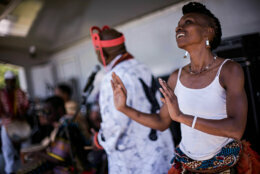
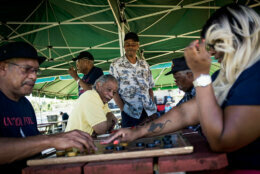


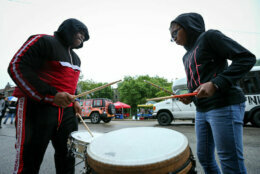
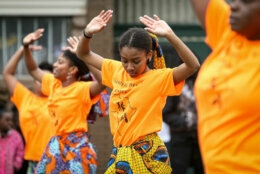



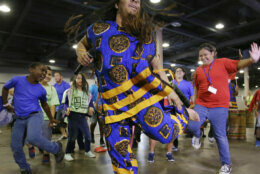
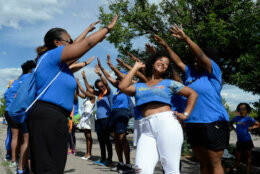
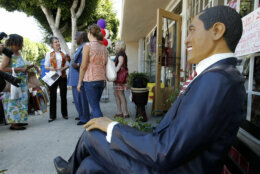
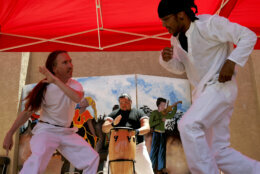
Most Americans know the basic story behind July Fourth, but bring up June 19 and puzzled looks and questions may arise.
Juneteenth, a blending of the words “June and “Nineteenth,” is also known as Emancipation Day, Freedom Day and Independence Day for black Americans.
This century-and-a-half-long tradition hasn’t received the same level of attention as the more commonly known Independence Day, though the importance of Juneteenth reaches far beyond its place on the calendar.
“Juneteenth is not just a date. Juneteenth is a spirit. Juneteenth is a mentality,” said Steve Williams, president of the National Juneteenth Observance Foundation.
July Fourth is widely known as Independence Day, though slavery remained in the United States for at least 88 years after the Declaration of Independence announced “all men are created equal.” Thus, many black Americans recognize Juneteenth as Independence Day because, as activist Fannie Lou Hamer once said, “Nobody’s free until everybody’s free.”
This Juneteenth, which falls on a Friday, comes amid the coronavirus pandemic and widespread protests following the killing of George Floyd in Minneapolis police custody. Virginia is looking to enshrine the day’s status as a paid state holiday, and there are renewed calls to make Juneteenth a federal holiday.
“This year, Juneteenth is going to be special,” said Marcus Board Jr., assistant professor of African-American studies at Georgetown University. “The thing about COVID-19 and the pandemic is that it’s a mirror — it shows us a reflection of what many of us already know about society, which is that the world is harder for oppressed people. So, Juneteenth … is really a moment for us to talk about more than our surviving, but that we are able to define our own story.”
What is Juneteenth?
On June 19, 1865, Union Army Gen. Gordon Granger read General Order No. 3 to the enslaved people in Galveston, Texas, informing them of their freedom two and a half years after President Abraham Lincoln issued the Emancipation Proclamation. Thus, “the most popular annual celebration of emancipation from slavery in the United States” was born.
ABC-TV show “Black-ish” premiered its fourth season with an episode dedicated to Juneteenth, and the following video is a simple, rhythmic definition of the holiday for people of all ages.
Juneteenth celebrations kicked off in Texas in 1866 and gradually spread throughout the South. There are stories of African-American celebrants setting off gunpowder in tree stumps because they were barred from using fireworks or rent public spaces.
Houston is considered the birthplace of the celebrations. In 1872, former slaves bought 10 acres of land for $800 and established Emancipation Park, which was the home for their Juneteenth celebrations and Houston’s only public park and swimming pool open to African Americans.
The Great Migration brought the celebrations to the Midwest in the 1900s, establishing Juneteenth as a nationwide commemoration of the liberation and resilience of African Americans.
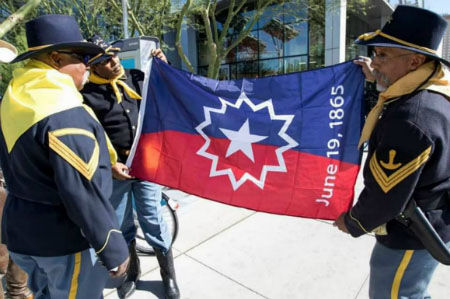
Today, Juneteenth celebrations tend to take on the personality of the cities in which they are held. Barbecues, social gatherings, parades and a flag raising are common staples, along with a “Miss Juneteenth” scholarship pageant for young black women.
In D.C., Williams said, there has historically been a prayer breakfast at the National Press Club, a wreath laying at the Emancipation Memorial at Lincoln Park and a Juneteenth flag raising at Howard University in conjunction with the Buffalo Soldiers.
D.C. also has its own Emancipation Day on April 16, which marks the abolition of slavery in the District in 1862.
But, this year, D.C.’s Juneteenth events have been canceled because of the coronavirus pandemic, although there were some last-minute events announced in the wake of the protests around the D.C. area.
Williams said the National Juneteenth Observance Foundation is working with people across the country to hold events virtually, such as Juneteenth flag raisings and pow wows with Native Americans in Oklahoma.
The impact of George Floyd’s death and the pandemic
The protests and discourse around the country sparked by the death of George Floyd in Minneapolis police custody sets up this Juneteenth to be unlike any other.
“It’s interesting how these historical lines converge,” said Dr. Greg Carr, associate professor and chair of Afro American studies at Howard University.
He referred to the fact that Floyd attended Jack Yates High School in Houston’s Third Ward, named for the former slave and community leader that helped purchase Emancipation Park in “one of the most historic black districts in the country and the epicenter of the Juneteenth celebration.”
It’s also an opportunity for Juneteenth to get unprecedented exposure with the confluence of events involving the protests and the COVID-19 pandemic.
“And so, this year, I expect to see even more information circulating, more revolutionary growth, more transformative politics from black people, because that’s what it’s always been and now we’re going to have that spotlight,” Board said.
Board added that this Juneteenth should push people to “unlearn some of the things about race and politics that they had been taught, and really get into what this practice of joy and celebration looks like today.”
Still, Carr is concerned about the effects of public displays of social activism at a time when people should still be practicing social distancing measures during a pandemic disproportionately affecting black, Latino and Native American communities.
“You run [Juneteenth] smack into a pandemic, I think we really have a challenge this year,” he said. “In some ways, we’ve been socialized to think of things almost episodically. So, when George Floyd lost his life, it was like the beginning of a new episode in contemporary American history, but it didn’t mean the close of the previous episode. We’re in the middle of a pandemic.”
“I’m afraid that Juneteenth this year might be another test of whether or not we understand that the episode of the coronavirus, COVID-19, is not over.”
But, Board said, even amid the pandemic and social unrest, there’s a silver lining.
“Joy is at the center of any movement,” he said. “It’s really important that we establish that joy as the driving force behind all social change. Without that joy, without that potential for the world to change, none of this ends up being possible.”
Some of that joy will come in the form of Opal’s Walk, 93-year-old Opal Lee’s journey to D.C. to raise awareness in the fight to make Juneteenth a federal holiday, and the new film “Miss Juneteenth,” which comes out on its namesake day Friday.
July Fourth, Juneteenth and a push for the mainstream
The theme of independence has inextricably linked these two holidays, and though they’re celebrated similarly today, that wasn’t the case initially.
Carr said African Americans treated July Fourth as more of a tertiary holiday behind Juneteenth and Jan. 1. Frederick Douglass, in his famous “What to the Slave is the Fourth of July” speech, cited July 4 celebrations as part of the hypocrisy of the U.S. calling itself a free nation while slavery remained an institution.
It wasn’t until the Reconstruction era that African Americans began to embrace July Fourth.
“So July Fourth enters the African-American ritual rotation in a complicated way that is more about black community than it is a common denominator of American identity,” Carr said. “And so, it exists — almost like a lot of other things in the African-American community — in a similar but parallel ritual structure.”
“Juneteenth is the completion of celebration and the cycle of celebration in America, along with the Fourth of July,” Williams said. “Having an understanding of the importance of Juneteenth — on both sides, those who are the recipients of the 13th Amendment and those who helped pass it and fight for it — is essential for us to get to the root of the problems.”
The momentum from the protests sparked by Floyd’s May 25 killing has led to a number of billion-dollar entities announcing plans to observe Juneteenth as a company holiday.
Both Twitter and Square are making #Juneteenth (June 19th) a company holiday in the US, forevermore. A day for celebration, education, and connection.https://t.co/xmR3fWMiRs
— jack (@jack) June 9, 2020
Vox Media will observe Juneteenth as a company holiday and is launching a fellowship program focused on HBCUs and members of NABJ, per company memo from Chief Executive Jim Bankoff: pic.twitter.com/1yXzrJv2Vo
— Ben Mullin (@BenMullin) June 9, 2020
Nike and the NFL made similar announcements last week, helping to raise Juneteenth’s profile before an important vote to decide whether it will become a federal holiday.
D.C. and 47 states, including Maryland and Virginia, recognize Juneteenth as a holiday or day of observance. In 2014, Maryland passed a law requiring the governor to annual proclaim June 19 as “Juneteenth National Freedom Day.” And, just this week, Virginia Gov. Ralph Northam said he would work to make Juneteenth a paid state holiday.
But Juneteenth is still not a federal holiday, even though it has more than the requisite 39 states observing it.
Williams said the National Juneteenth Observation Foundation had a hand in 43 states observing Juneteenth and is pushing to amend a 2012 bill to make Juneteenth a national day of observance. The measure is expected to be voted on June 18, the eve of the 155th Independence Day.
“It’s not going to happen overnight,” Williams said. “Our foundation is working constantly on a three stage plan — awareness, education and socialization — in order to try and heal America with this issue.”
The key to making Juneteenth more mainstream is to make it a part of the American experience, not just the African-American experience.
Carr points out that, in some areas, that’s already taking root.
“Juneteenth in Texas, interestingly enough, isn’t always an all-black affair,” he said. “And I think that becomes a microcosm of what we can aspire to on the national level.”
Like Williams and Carr, Board said the socialization aspect is critical to making Juneteenth a holiday for all Americans.
“Learning and becoming aware of these values, of this holiday, of our joy really requires being in community with people,” he said. “And being in community with people, as cliché as it may sound, it actually requires love, it requires caring about somebody and being willing to change based on what your plans are for that person.”
However, Board said, that community must include a commitment to diversity and cited white people who rely on one or two black friends to give them “the breadth of the black experience.”
“The reality is, no one black person contains that multitude,” he said. “So, it’s important to be in community with people and to really be living your lives with those people. And that is not something that you can do on a surface level. It’s something that you have to invest in, it’s something that you have to be sincere about and it’s something that you have to take time to develop.”
At a time when violence has marked some of the widespread protests against systematic racism in the U.S., Juneteenth could become the sort of unifying factor Carr envisions.
“If the objective is organized around the idea of celebration, liberation, independence, self-determination — these values claim to be American values — then Juneteenth can indeed be a mirror into something we can all aspire to, regardless of our background.”
More Juneteenth


